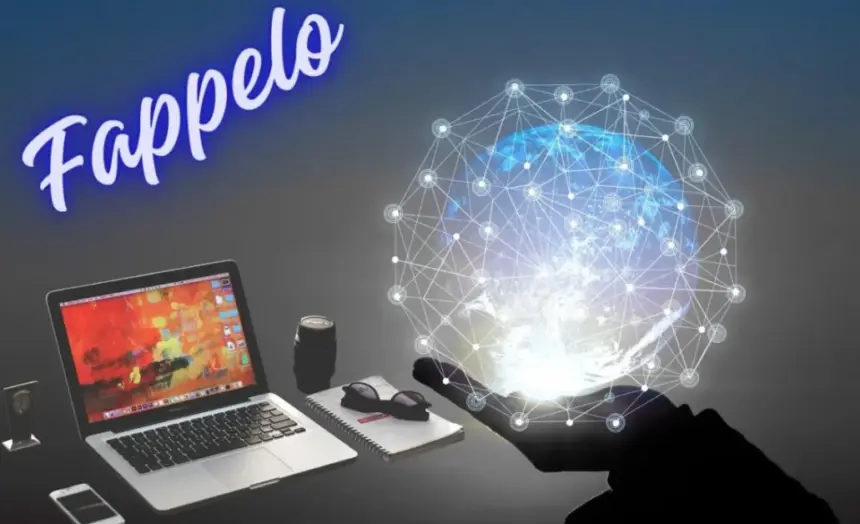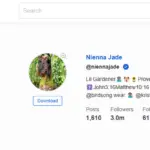In the ever-evolving world of modern culture and digital trends, new terms, names, and products can emerge from seemingly nowhere, capturing attention and gaining traction in a short period. One such name that has caught the curiosity of many is Fappelo. Whether you’ve seen it on social media, heard it from a friend, or come across it in a trending news article, you might find yourself asking, “Where does Fappelo come from?” In this article, we will dive deep into the origins of the name, its rise to popularity, and the various contexts in which it is used.
What is Fappelo?
Before exploring where Fappelo comes from, it’s important to clarify what exactly Fap pelo refers to. In today’s digital age, Fap pelo appears in multiple forms across different platforms. From a nickname to a brand name and even an internet meme, the term has garnered attention in different circles.
Fappelo could be used as a playful or quirky nickname for individuals, a brand identity, or even a reference in memes or social media content. But where did this term originate? Let’s break it down.
The Origin of the Term Fappelo
Fappelo’s exact origin is a bit murky. It’s not a word that has a clear etymological background, nor does it appear to be rooted in any traditional language. However, based on the phonetic construction and its similarities to other internet slang terms, several theories can be proposed about its creation.
The Popularity of Slang and Internet Culture
The internet has been a breeding ground for creating new terms and slang. From popular meme trends to inside jokes shared across various online communities, people are constantly inventing and redefining words. Fap pelo, like many other viral names, seems to be the product of this digital environment, where humor, creativity, and subcultures intersect.
The name “Fappelo” might have originated from a combination of other existing words. One likely source is “fap”, an internet slang term that is typically used to describe a self-indulgent or pleasurable action, often related to masturbation. Though the term has a slightly adult connotation, it is widely used in a tongue-in-cheek manner across forums, memes, and online communities. The suffix “-elo” could be a playful addition, either meant to sound catchy or simply to create a unique identity.
Alternatively, Fappelo may have been influenced by other names and words that carry a similarly whimsical or playful tone. The construction of the term seems to echo the use of suffixes in internet culture, where seemingly random or humorous words are combined to create new, catchy phrases.
Fappelo as a Brand Name
Another plausible origin for the term “Fappelo” is its use as a brand name. Over the years, many companies and startups have chosen unique or unusual names to stand out in the competitive digital space. A quick search reveals that there is a small but emerging tech and lifestyle brand by the name of Faappelo, which may be responsible for driving some of the name’s recognition in recent times.
This brand, which focuses on providing high-quality gadgets, accessories, or services to a millennial and Gen Z audience, has found its niche in creating viral marketing campaigns and building an online presence. By leveraging internet culture and adopting a memorable, quirky name like Fappelo, the brand has managed to make its mark in a crowded marketplace. However, it’s important to note that the widespread popularity of the name might not be solely due to this brand but rather its convergence with other cultural trends.
The Rise of Fappelo in Memes and Social Media
Like many other terms that gain viral status, Fappelo’s usage exploded on social media platforms such as Twitter, Reddit, TikTok, and Instagram. Users often adopt new names or phrases to reflect an in-joke or to create humorous content that resonates with others. The appeal of Fappeelo lies in its lighthearted, fun, and slightly absurd nature.
In meme culture, Fappelo has become a term used to represent various humorous or exaggerated online personas. Whether it’s used to describe someone’s online alias, a character in a meme, or even just as a fun word to use in banter, it has earned its place as a favorite term in certain online circles.
Moreover, social media influencers or streamers have often adopted the term Fappelo as part of their branding or character. This practice is not new—many influencers and content creators often choose eccentric or amusing names to stand out in a crowded digital landscape.
Fappelo’s Relationship with Online Communities
In many online communities, especially those centered around gaming, pop culture, or internet humor, Fappelo has become synonymous with light-hearted or self-deprecating humor. Much like other internet meme phrases, the term may not carry a deep meaning but instead serves as a fun and relatable expression among those who understand its context.
From chat rooms and Discord servers to niche subreddits, Fappelo is often used as a playful handle or catchphrase. Its simplicity, combined with the growing digital culture of abbreviation and meme-sharing, has made it an attractive term for people who engage in lighthearted conversation or creative online personas.
Fappelo’s Cultural Impact: Memes, Humor, and Trendspotting
The cultural impact of Fappelo cannot be understated. As with other internet-born terms, it is a perfect example of how online communities shape language, humor, and trends. Fappel’o’s rise highlights several key aspects of modern digital culture:
1. Memeification of Words
In the world of memes, words are constantly being transformed into symbols of humor and relatability. Fappelo, like many other viral terms, has benefited from this process. It’s not just a name—it’s a meme in itself, a marker of internet culture that spreads through repetition, adaptation, and association.
2. The Role of Social Media
Social media plays an essential role in the spread of viral terms like Fappelo. With millions of people posting, sharing, and commenting every day, a small niche term can quickly escalate into a global phenomenon. Platforms like TikTok, where humor thrives, have been particularly instrumental in popularizing such words.
3. Community Identity
Fappelo also contributes to the creation of community identity. Online groups often bond over shared language, and by adopting certain terms, such as Fapp elo, they create a sense of belonging and understanding among members. As these terms spread, they further strengthen the online community’s shared culture.
Where Does Fappelo Go From Here?
As we’ve seen with many viral terms, there is no telling where Fappelo will go next. Its origins might remain a bit enigmatic, but its future is anything but certain. As new internet subcultures form and different digital platforms rise in popularity, Fap pelo could continue to evolve in surprising ways.
One potential direction for Fappelo is its integration into popular culture. Much like other meme terms that crossed over into mainstream usage (such as “yeet” or “lit”), Fap pelo could find itself in advertisements, television shows, or even everyday conversation. Its potential for further virality is high, especially if it continues to resonate with younger, internet-savvy audiences.
On the other hand, it could remain confined to the digital subcultures that first adopted it, a term beloved by a select few. Either way, Fappelo’s journey underscores the ongoing power of the internet to shape language, humor, and social trends.
Conclusion: The Mystery of Fappelo’s Origins
So, where does Fappelo come from? It’s a combination of playful internet slang, viral meme culture, and brand identity, all converging in an era where language is constantly evolving online. While its exact origin may remain unclear, one thing is certain: Fap pelo’s rise reflects the ever-changing and fast-paced nature of digital culture.
As more people continue to use and adapt the term, its influence will likely grow, and its impact on internet language will only become more evident. Whether you encounter it in a meme, a social media post, or as part of a brand name, Fap pelo is here to stay—at least for now.



